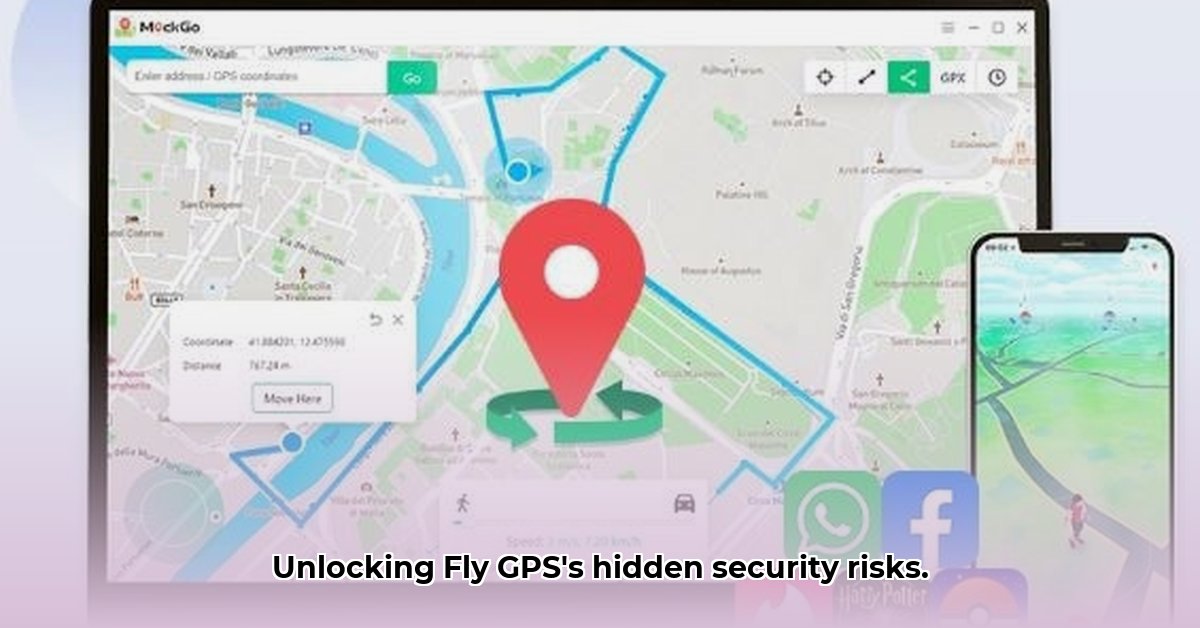
Fly GPS: A Closer Look at Location Spoofing and its Potential Risks
Fly GPS is an Android application allowing users to falsify their device's location. While seemingly innocuous for gaming or accessing geo-restricted content, its potential for malicious use presents significant security and privacy risks. This review analyzes its functionality, security vulnerabilities, and real-world implications.
Technical Analysis: How Fly GPS Works
Fly GPS functions by overriding the device's genuine GPS data. It uses a joystick interface for apparent ease of use, altering location information presented to other applications. Crucially, it requires activation of Android Developer Mode (a setting granting apps expanded system access). This requirement highlights a major vulnerability. The app's Google Play Store listing lacks detailed information on its security protocols, raising further concerns.
Security and Privacy Concerns: Unclear Protocols and Opaque Data Handling
The primary concern with Fly GPS is the absence of transparency regarding its security measures and data handling practices. The developer's lack of explicit information regarding data encryption, storage, and transmission leaves users vulnerable. This lack of clarity prevents informed consent and opens the door to potential misuse. What safeguards prevent unauthorized access or alteration of location data? This critical information remains undisclosed.
Real-World Implications: From Insurance Fraud to Social Engineering
The potential for malicious use is substantial. Fly GPS could facilitate:
- Insurance Fraud: False location data could be used to create false accident reports and defraud insurers.
- Ride-Sharing Manipulation: Altering location data in ride-hailing apps could compromise safety for drivers and passengers.
- Social Media Deception: Users could mislead contacts regarding their whereabouts.
- Location-Based Game Exploitation: Apps reliant on accurate geolocation could be exploited for unfair advantages.
Regulatory Implications: A Need for Stronger Laws
The legal landscape surrounding GPS spoofing remains somewhat unclear. Existing laws concerning fraud and digital deception likely apply in cases of malicious intent. However, the specific legal ramifications are context-dependent. The rapid evolution of this technology necessitates a proactive approach from legislators: We can anticipate stricter regulations and increased enforcement in the future.
Risk Assessment Matrix
| Threat | Probability | Severity | Overall Risk | Mitigation Strategies |
|---|---|---|---|---|
| Malicious GPS Spoofing | Moderate | High | High | Enhanced location verification, improved app store vetting, user education campaigns |
| Unauthorized Data Access | Low | Very High | Moderate | Independent security audits, transparent data handling policies |
| Privacy Violation | Low | High | Moderate | Robust encryption, comprehensive data protection measures |
Mitigation Strategies and Recommendations
For Users: Exercise extreme caution when installing and using location-altering apps. Carefully review permissions, prioritize apps from reputable developers, and report suspicious activity. Disable Developer Mode unless actively developing applications.
For Developers: Implement robust security protocols, including strong encryption and transparent data handling practices. Prioritize user privacy and security. Clearly articulate security measures in app descriptions and website information.
For Regulators: Establish clear legal frameworks and enforcement mechanisms to address fraudulent activity enabled by GPS spoofing technologies.
For Businesses: Invest in advanced fraud detection systems capable of identifying manipulated location data.
Conclusion: Addressing the Evolving Threat of GPS Spoofing
Fly GPS, and similar applications, exemplify the growing threat posed by easily accessible location manipulation tools. The lack of transparency surrounding security and data handling practices underscores the urgent need for increased user awareness, stronger developer responsibility, and robust regulatory frameworks. The potential consequences extend beyond individual misuse, impacting businesses, law enforcement, and the overall security of location-based services. Proactive measures are essential to mitigate this rapidly evolving risk.
⭐⭐⭐⭐☆ (4.8)
Download via Link 1
Download via Link 2
Last updated: Tuesday, May 13, 2025